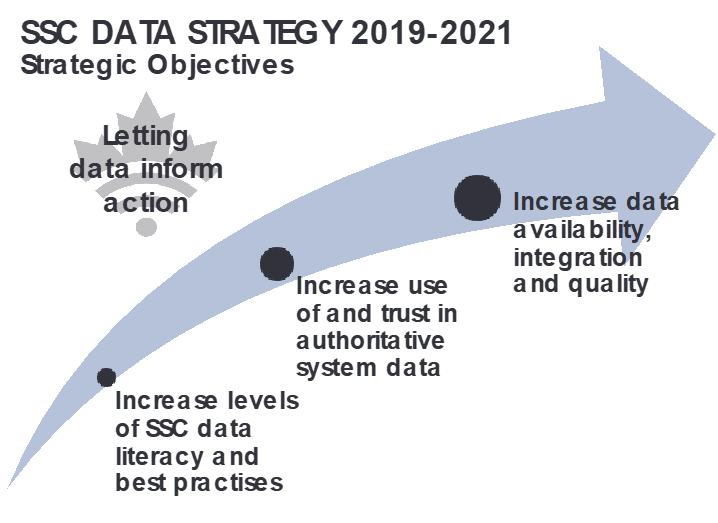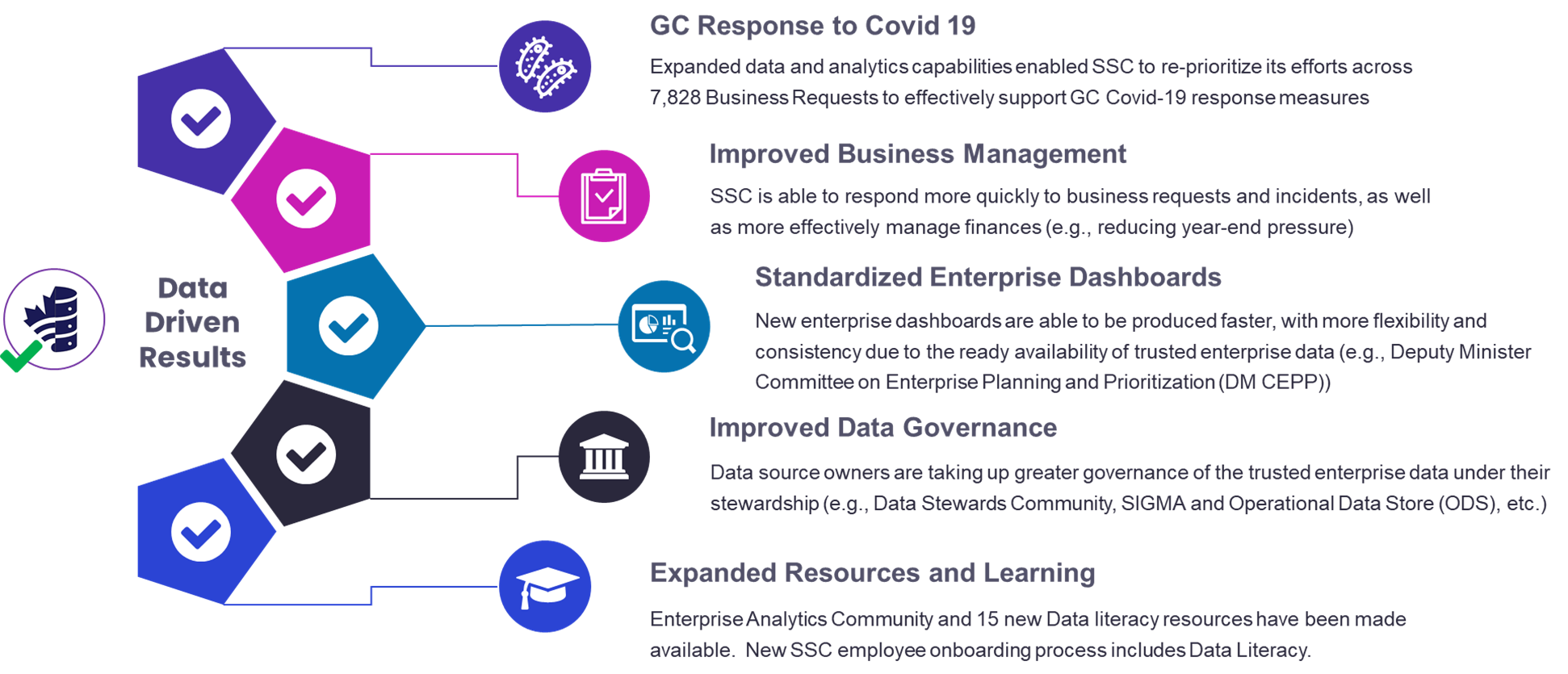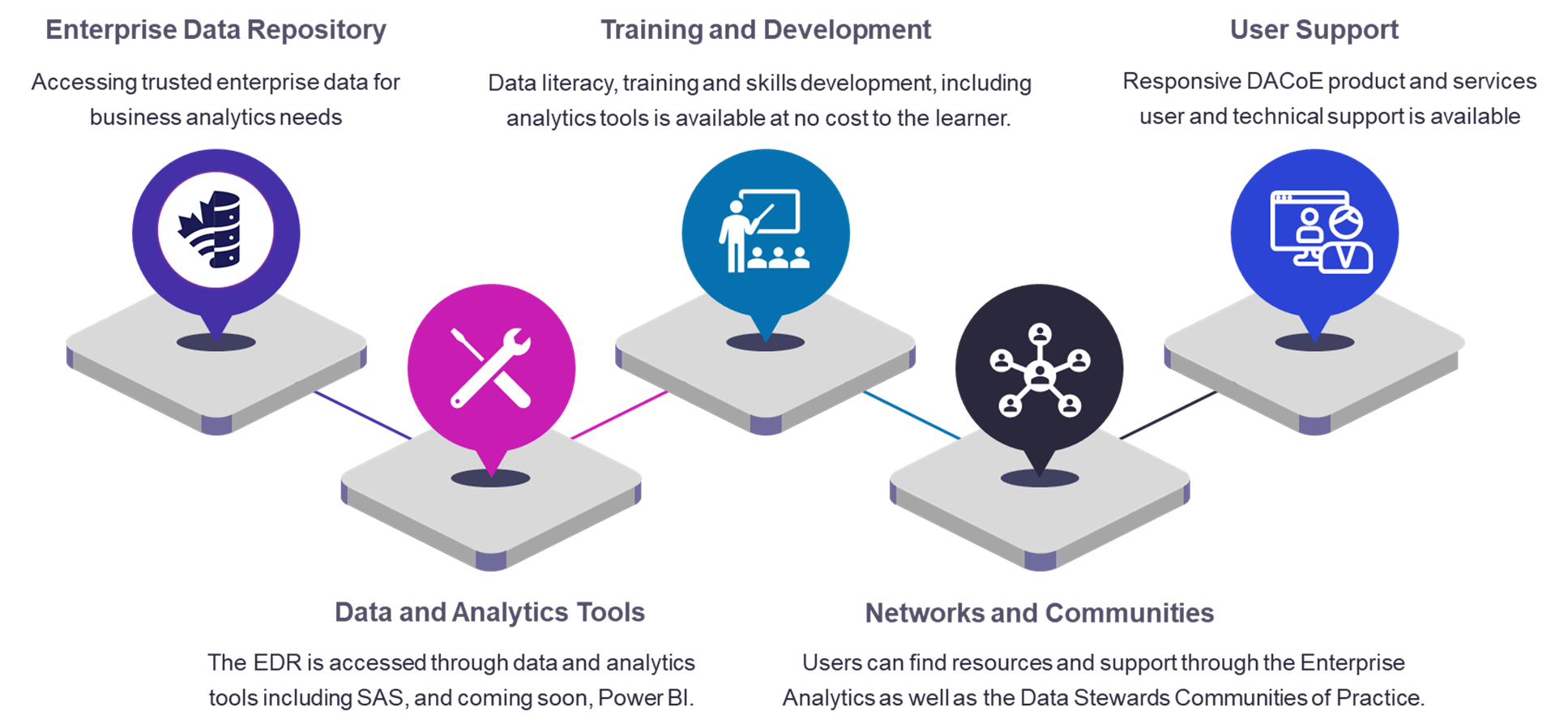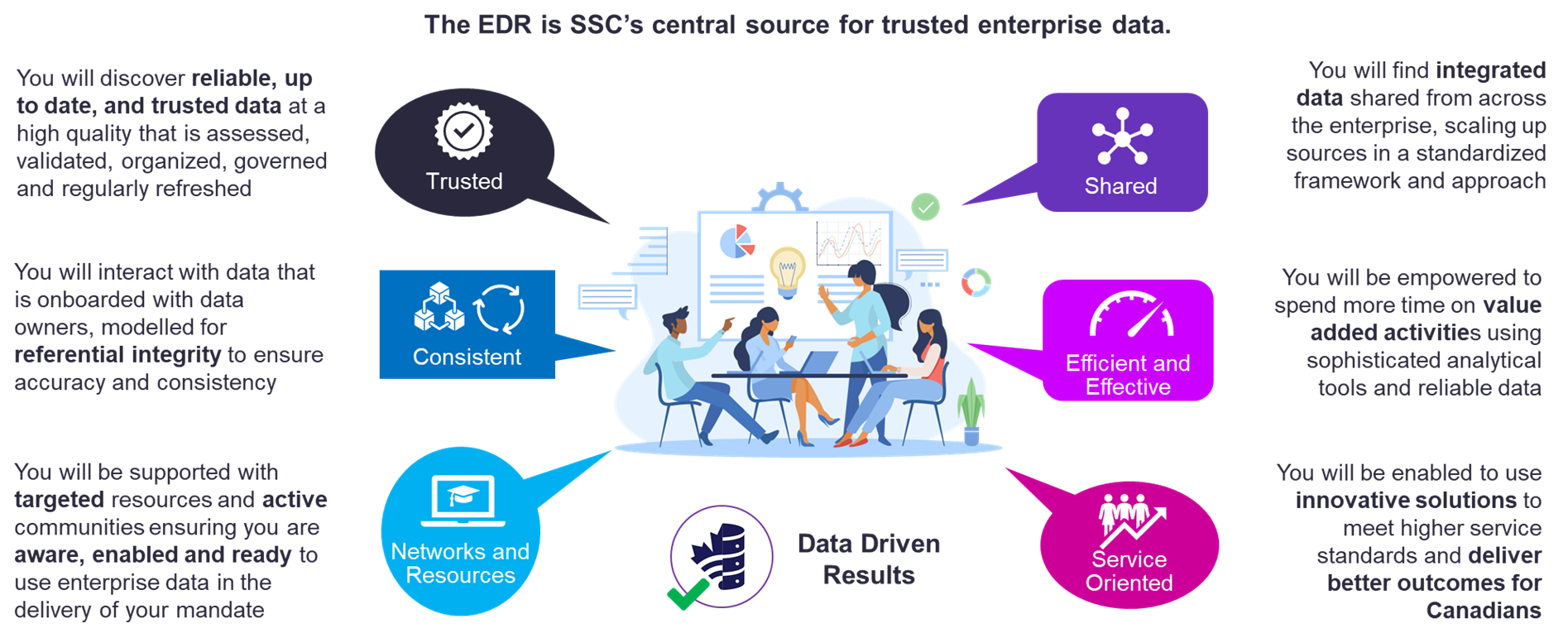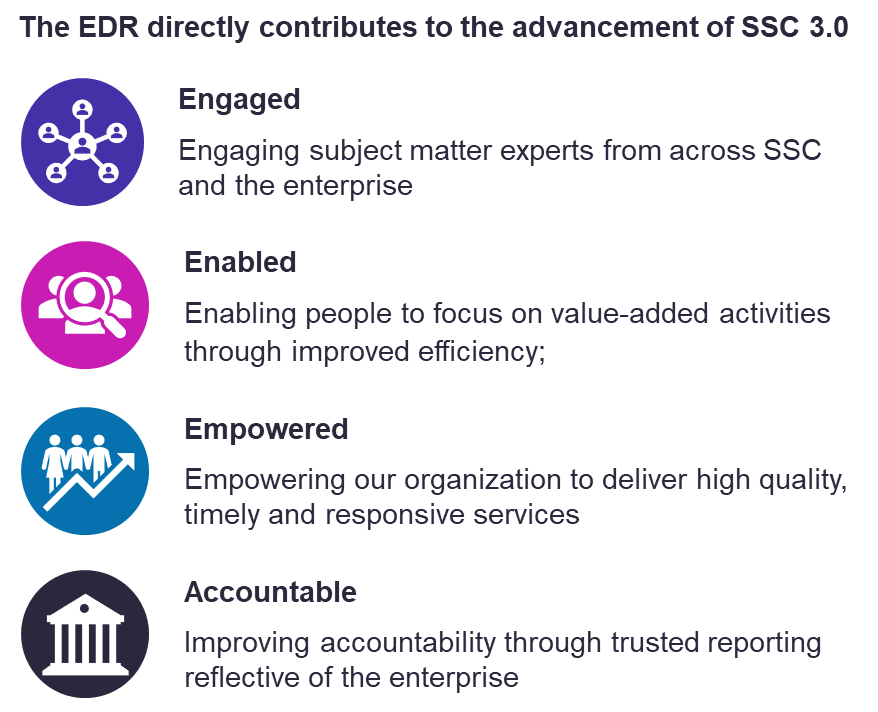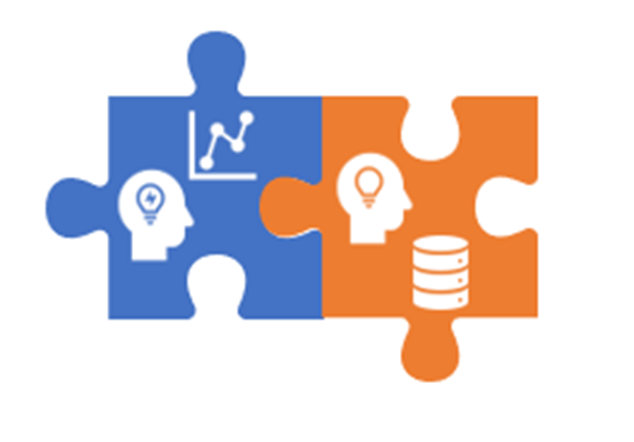Important: The GCConnex decommission will not affect GCCollab or GCWiki. Thank you and happy collaborating!
Shared Services Canada
Shared Services Canada (SSC) delivers digital services to Government of Canada organizations. We provide modern, secure, and reliable IT services so federal organizations can deliver digital programs and services that meet Canadians needs.
The Data and Analytics Centre of Excellence (DACoE)
- Data is the fuel for digital government and a foundation for SSC 3.0 business transformation. The EDR is a critical component and enabler of these initiatives, as defined in the SSC Data Strategy 2019-21.
- Led by the Chief Analytics Officer (CAO) and the Chief Data Officer (CDO), the DACoE delivers strategic direction, infrastructure, training, and support for SSC’s data and analytics needs, similar to other core functions such as workforce or finance.
- By leveraging existing authoritative assets and expertise, the DACoE is maturing a hub and spoke model across SSC to improve collaboration across functional areas and service lines. We are building a trusted asset as well as improving data governance and analytics capabilities throughout SSC.
The Suite of the Data Analytics Center of Excellence (DACoE) Products and Services
Data: The Enterprise Data Repository (EDR)
What is the Enterprise Data Repository (EDR)?
Siloed data sources have been brought together, modelled for referential integrity, ensuring accuracy and consistency of data in the EDR to allow 360-degree views by service and/or organization, including historical trends. The EDR is a tool agnostic Oracle data base, which can be accessed by an analyst's preferred method. Currently available tools to access the EDR are Power BI (Coming Soon), and the SAS suite of Enterprise Guide (EG), Visual Analytics (VA), and SAS add-in for MS Excel.
The Data Challenge
SSC’s business lines are producing a wealth of data and information from a variety of sources across multiple domains. Being able to use this data effectively and efficiently in a consistent and replicable way has been a pervasive challenge for SSC. Why is the EDR Important to SSC?
- Improved access to authoritative data sources. The EDR is a central database bringing data together from across various sources.
- Consistent reporting results from a central source which is approved and validated by data owners and governance for accuracy, relevance, and reliability.
- Faster, more frequent reporting enabled from up-to-date source data which is regularly refreshed in the EDR (reduces reliance on unmanaged, unsupported, and outdated black books).
- Richer insights since EDR data across the enterprise can be joined to provide a 360 view thereby improving decision making.
Tools
Analytics tools that are currently available to our SSC users are Power BI (Coming Soon) and SAS.
The EDR can be accessed through both Power BI and SAS.
Power BI
Power BI is a software tool to turn your data into coherent, visually immersive, and interactive insights. Your data may be an Excel spreadsheet, or a collection of cloud-based and on-premises data sources. Power BI lets you easily connect to your data sources, visualize and discover what's important, and share that with anyone or everyone you want.
SAS Suite
SAS (Statistical Analysis System) offers a suite of software packages used for statistical analysis and data visualization. The SAS group of computer programs works together to store data values and retrieve them, modify data, compute simple and complex statistical analyses, and create reports.
Whether you're a data scientist, business analyst, statistician or forecaster, you'll discover the real power of SAS® to explore, analyse and visualize data.
The EDR can be accessed with the below suite of SAS tools. Connections to the database have already been made, no special requests are needed to access it after you start using the tool of your choice.
| SAS Enterprise Guide 8.1 | SAS Visual Analytics | SAS Add-On For Microsoft Excel and Microsoft Office | |
| Typical User Profile | Programmers: someone who wants to extract, transform and/or load data.
Statisticians: someone who wants to describe and analyze data and draw conclusions. Analysts: someone who wants to derive insight from data through analysis and reporting. |
Developers: someone who builds dashboards.
Consumers: someone who visualizes dashboards. |
MS Office user: someone who wants to use MS-Excel, MS-PowerPoint or MS-Word to run analyses, generate reports, and share data available from the SAS Server. |
| Description | SAS Enterprise Guide provides transparent access to data as well as the ability to export it to other applications. It's an easy-to-use menu- and wizard-driven tool for analyzing data and sharing results. | SAS Visual Analytics is a powerful web-based tool to visualize your work.
|
Upon installation of SAS Enterprise Guide, a SAS add-in application feature is available via Microsoft Office programs, including Excel. Analysts can import data from SAS and the EDR into Microsoft Excel to work in that environment. |
| Training Videos | Overview of SAS Enterprise Guide 8.1 - SAS Enterprise Guide - SAS Video Portal | Overview of SAS Visual Analytics - on SAS 9 - SAS Video Portal | VERSION 8: Get Started Using SAS® Add-In for Microsoft Office - Version 8 - SAS Video Portal |
Training
Training and skills development for data consumers, curators, stewards and scientists are available including, Data Literacy and available training for Power BI and SAS tools at no cost to the learner.
Data Literacy Program
The Government of Canada's mandate is to provide a data-driven decision-making process.
Enterprise Information and Data Management Services directive supports:
- Assisting you with your learning and development needs
- Creating and maintaining a curriculum of learning resources
- Promoting available learning resources to the Department
- Current trends in Data Literacy learning and development
Data and Analytics Networking
Analysts can find resources and support through the communities of practice.
Enterprise Analytics Community of Practice
The Enterprise Analytics Community of Practice (EACoP) has been created to cultivate an analytical community within SSC and give users of enterprise data and analytical tools the opportunity to share their knowledge, ideas and analytical expertise.
This community serves as a hub for analytics resources as well as providing access to analytics training and development opportunities.
For more information, or news on our upcoming events, please visit the Enterprise Analytics Community of Practice GCCollab page.
Data Stewards Community of Practice
The Data Steward Community of Practice (DSCoP) is a working-level community responsible for building the structure within which data stewardship can be formalized as a role and a practice.
The DSCoP also serves as a forum to exchange ideas, provide insights, bring forward challenges and highlight best practices related to data stewardship within Shared Services Canada (SSC).
Enterprise Data Repository Technical Working Group
The role of the Enterprise Data Repository (EDR) Technical Working Group is to develop, maintain and improve the quality, usability, and integrity of EDR data to ensure its effective and consistent use across SSC and to provide recommendations to the Data and Business Analytics Council (DBAC). Specifically, the group will provide input regarding:
- Issues and concerns with data security and privacy requiring further investigation
- Recommendations associated with SSC’s data governance policies and standards
- Consistency of data usage across the enterprise
- Improvements in the analytics solution
- Recommended priorities for technical changes and the impact they might have on various users
- Recommended priorities with respect to adding new data or functionality to the EDR
- Identification of training and other support that would help the user community
Got questions, need more information or want to be Involved? Contact the DACoE via dacoe-cead@ssc-spc.gc.ca
